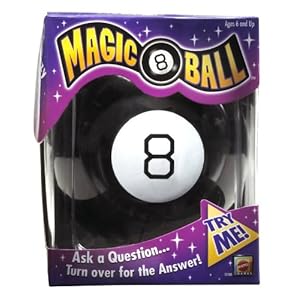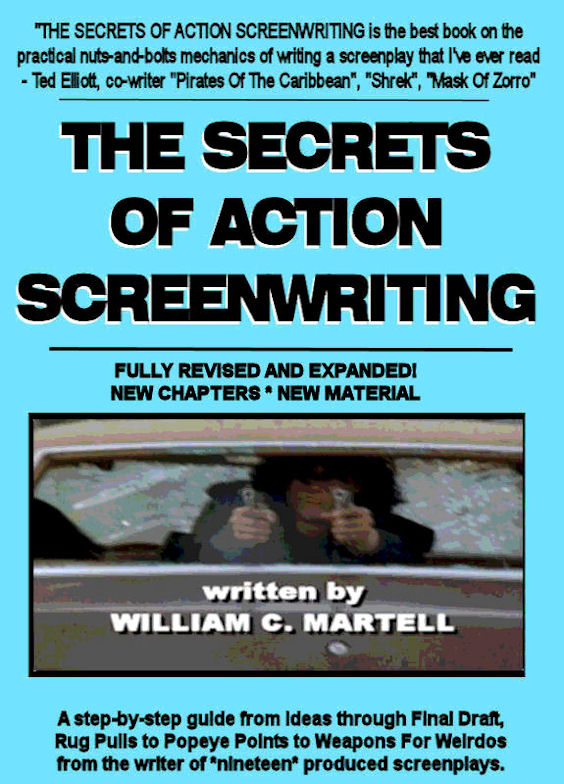Now that my blood pressure is back to normal I can talk about it.
I hired someone to do some work, and gave them *very specific instructions* on what to do... and then they showed me the results it was as close to the exact opposite of what I asked for as you can get. When I mentioned this, they said that they were being creative - and thought I’d like their version even more than what I asked for. I did not. The reason why I gave *very specific instructions* is that I wanted it done that way, not some other way. Now I’m stuck with it done the wrong way, and have to undo it, then pay someone else to re-do it the way I wanted, and complicating all of this is that it’s a friend - so they will want to know why I changed it from their version. Here’s the thing - the reason why I went out of my way to give *very specific instructions* is that is how I wanted it. Not some other way. I wish my friend had just *listened* to my instructions...

Those of you who have been reading this blog for a while may remember the entry about trying to find a new place to get my hair cut when they closed the little barbershop I used to go to in North Hollywood. The woman who cut my hair in the little barbershop was a tejano singer, and this was her day job. And when I told her how I wanted my hair cut *that’s* how she cut it. After they closed I tried a succession of places (still really haven’t found a great one) and many of the places were *awful*. The worst was the most expensive haircut I have ever had - and the guy at the *salon* was an “artist” who cut my hair so that it was longer on one side than the other *on purpose*. I had to walk around with my head cocked to the right for a couple of weeks until I could get it fixed, and ended up with a sore neck. The salon guy was an *artist* - and his *vision* of my haircut was that one side would be longer than the other. That is not what I asked for at all!
The problem with artists is that sometimes they don’t listen.
HEAR ME OUT!
Wait! Screenwriters are artists - are you saying we should just keep our mouths shut and do what we’re told?

No. That’s not the same as *listening*. The assignment I just finished began as an idea from the producer. I liked their idea, but had an interesting twist that wasn't part of their original story. Should I have just kept my mouth shut and done what I had been told? Well, when they told me the idea, it seemed as if this was just a general idea and I could play with it. It did not seem like their idea was *exactly* what they wanted, more that it was a jumping off point. But because I had never worked with them before, I asked “Hey, would it be okay if I did this?” before going to script. That way, if I had “read them” wrong, I wouldn’t end up with a completed screenplay that they hated. Saves *me* work. And their response was: “Cool!” Usually when they hire a screenwriter they don’t just want some typing monkey - they *want* someone who is going to come up with interesting ideas. Because I listened closely I heard that they would probably be open to my ideas - but I asked just in case.
And that’s the most important lesson in *listening* - it’s not only what they say, it’s how they say it. Two different producers may give you the same instructions, but one wants them followed to the letter and the other is just giving you a suggestion and *wants* you to play with it and come up with something even better. Part of a writer’s job is to get under the skin of different character and understand how they tick, so that we can write them truthfully - and those skills are required even when we are in a meeting! If you are not good at understanding other people, “reading them”, listening to the *way* they say things as well as what they say; you will have a heap-o-trouble as a screenwriter. A novelist can sit alone in a room and type, but a screenwriter is part of the team - we are making movies with all kinds of people and part of the job is *understanding other people*. That guy across the desk and those two assistants on the sofa are like your characters - you can’t just at them from the outside, you have to get under their skin. When they say something, you have to figure out what they mean... what they REALLY mean.
The good news is that you are allowed to ask questions.
The other good news is that assignments usually happen in steps - so if you completely screw up it’ll probably just be in the treatment stage, and you won’t have to throw a whole screenplay away. Some people dislike the steps in a step deal, but I love them because they prevent me from making a huge stupid mistake that requires I toss a whole draft. I can just screw up 15 pages and toss that. The problem with writing something for someone else (an assignment) on the fly - no outline or treatment - is that you can easily mis-read some small thing that is really a big things and end up writing something they hate so much they fire you. The ugly truth is that can happen even if you write exactly what they want - sometimes they read it and realize it doesn’t work (and *you* get the blame and fired rather than them admitting their idea stunk). But the more things you can do to give them the script they want, the better off you’ll be. And *often* what they want is something even better than what they can imagine - which is why they hired you and not a monkey.
DO AS YOU’RE TOLD!

But sometimes when they tell you what they want - that is *exactly* what they want! That’s why you have to learn how to read people. In the very same story notes meeting, the executive can tell you one thing that is a suggestion and another that is a requirement - and if you aren't listening carefully you may treat them the same. Often there are reasons and conditions they don’t tell you about - you’re only the writer. So on the rewrites to one of my scripts that sold, they had an actor in mind - but never told me this. Because the actor would want certain things in the script that were not in the original version, they mentioned them in the notes - and I wasn’t listening closely enough (and thought they were stupid ideas) and left them out of the next draft. They were FURIOUS - because they wanted to send that draft to the star, and now they couldn’t. Oh, I get it... so I included the stupid notes once I understood their purpose. By the way - the star said no, and another actor got stuck doing stupid things. I learned my lesson and listened closer and asked questions when I wasn’t sure.
Often notes have a practical reason, like snagging a star for less than their quote, and when they say they want something, they want *exactly* that! Sometimes there is a specific location or service or actor or some other thing that they need to make the movie (or sell it) and when they say they *need* a sex scene in a submarine, they kind of don’t want to hear the screenwriter’s smart ass response. That’s a great example - HBO demanded a sex scene in CRASH DIVE! And they were *funding the film*. As far as the producer knew, if he delivered a script *without* that sex scene HBO would pull the plug and there would be no movie. I could have killed the whole deal!
But usually when you get a note like this, it’s phrased as “We need a sex scene” rather than “We’d like a sex scene” or “What do you think about a sex scene here?” - but again, it’s often not the words but how they are spoken. You have to listen. There are producers and directors and stars who make everything sound like it’s just some minor favor they are asking you, when it’s really something that is critical and if you screw it up some other writer is working on the script next week. If you listen closely, you can tell which it is.
On every rewrite and every assignment there have been both notes that were suggestions and notes that were required.
USE YOUR HEAD!

If you don’t remember *how* they said the note, and forgot to ask (happens), all is not lost! You can often figure it out on your own. Just like with your characters, it all comes down to motivations - *why* would they say this? Thing about the note and the project and the person who gave you the note - look for reasons behind the note. We usually end up doing this anyway, because often notes are about the symptom but not the disease and our job as writers is to find the “note behind the note” and solve the disease which in turn solves the symptoms. Often that hidden problem solves all kinds of surface problems. But when the note doesn’t seem to be improving the screenplay, but changing it - sometimes that’s just a producer pissing in your script because they love the color yellow... and sometimes there is a hidden practical reason that you can unearth if you think about it.
The producer wants the protagonist to drive a *new* Ford Mustang instead of a cool vintage 1968 fastback. Well, any sane person would rather have him drive the vintage car... so maybe this note is really about product placement? On stuff like this, half of the notes will probably have some practical reason you can figure out and the other half will be pissing. But if you don’t stop to think about which is which, you could either end up leaving out several important things they need to get the film made... or filling your script with piss.
JUST LISTEN!

There are some creative people who are so self centered they never listen. I suspect my screw up friend falls into this category. They are always off doing their own thing... even when they are supposed to be doing *your* thing. There are screenwriters who get hired to adapt a book and instead focus on some minor element in the book they like and toss out the rest - which is the stuff the audience wants to see. So you end up with a script that just doesn’t work and gets shelved. If the writer is brilliant enough to write something amazing every once in a while, they don’t get kicked out of the business... but they end up with a bunch of producers who ended up with the weirdo drafts who will never hire them again.
I know a writer who got his big break - a producer read his spec script and hired him to write a genre script. Now, the writer was told *exactly* what subgenre this was, and the producer gave him a list of hit films in the genre they were hoping to make as much money as. But the write wasn’t listening. He thought the subgenre was played out, and wrote a script in a different subgenre (instead of buddy action, gangster film) and the producer exploded at him. Here’s the thing - when you hire a writer, you have to pay him for the draft... even if it’s not what you wanted. So this producer was out almost 6 figures on some new writer who couldn’t just do what he was told. The producer did not want to make a dark gritty gangster film, he wanted to make a fun buddy action film. The producer was not quiet about wasting money on this script, and the writer’s big break backfired on him. A few years later, when everyone forgot about his past screw up, he had another spec lead to an assignment... and this time he listened and wrote a script in the genre they asked for. I think he still screwed that up - by not listening to many small requirements and being replaced by another writer. If a producer asks you for a buddy action script, your job is to give them the most amazing and creative buddy action script every written. To be creative and give them something *better* than they wanted (but still what they wanted). I think this guy has problems with authority (don’t all writers?) and does his own thing just to screw the guy paying him. He’s all about himself - and doesn’t listen to anybody.
CAN YOU HEAR ME NOW?

That authority/ego thing is strong in many creative types. There are writers who *refused* to listen, even if it’s for their own good. I can’t count the number of writers I’ve encountered on message boards who ask for advice or feedback on pages - and when they are told something they don’t want to hear they reject it. People try to help them, and they go ballistic! One guy who used to regularly post pages got the exact same feedback on every single draft - it was as if he *refused* to fix the problem that everyone pointed out, but changed everything else! Character names, locations, situations - all would change. The problem with the scene? Always remained. Always. The posted pages never got better - they just got different. Why he refused to make the change that would make them *better* is anyone’s guess.
I have said before that I think some writers are self destructive and do things like this on purpose - they *want* to fail. So when a dozen people give the same note, they fight it - because applying that note would improve their work... and they’d rather fail. Maybe they’re afraid of big failure so they put off any situation that would get their script into the hands of someone who might actually buy it or hire them by screwing up on a small scale so that people keep telling them they aren’t ready... No chance to fail big time (where it matters) if you fail small time (where it’s just a bunch of message board idiots). Whatever the reason, if people like this would just *listen* they’d become better writers. None of us are perfect, and if a bunch of people have the same problem with your screenplay there’s a pretty good chance it may need some work. Hey, maybe everyone is wrong - but hear them out. Give it a good listen and honest consideration. The amusing thing with this guy was that he kept posting pages with the same problems, so when someone new joined the group and read his pages, they’d say what dozens of people had said before... and the guy would go back and rewrite his script changing a bunch of things *except* the problem. It became free entertainment when the new board member would become angry and frustrated because this guy wasn’t fixing the problem.
One of the problems with people who are stuck in their own heads and don’t listen to the world around them is that they are usually crappy writers. They are not listening to the different voices and attitudes and cadences of the people around them - so all of their characters sound exactly alike. A major part of our job as screenwriters is to observe the world around us, and part of that is *listening*. If you have shut yourself off from the world, you have shut yourself off from life, I know an artist (sculptor) who seems oblivious to the world around her - and keeps destroying relationships because she just isn’t listening to her boyfriends at all. She expects to the world to work around her - and when some guy goes out with her and tells her something important she nods but is not paying attention. When the guy gets angry, she still doesn’t really listen to him... then wonders why she got dumped again. I think as artists we *do* live in our own little worlds sometimes, but we need to come out of them often enough to be part of the real world. Our work becomes better and our lives become better if we just listen sometimes.
I have a Script Tip in rotation called Listen & Observe about keeping your eyes and ears open for interesting things in the world around you. That’s such a basic thing for writers that it seems silly that I have a Tip about it... except I keep bumping into writers who need to be reminded to open their eyes now and then. I can’t imagine those people in some meeting where they’re missing all of the notes and the *how* of the notes - so when they turn in their next draft it’s *nothing* like what they need. Instead of a buddy action script, it’s about a musical about a caveman alone in a cave.
When people are talking to you, listen! You may listen closely and decide they were just making a suggestion instead of telling you a requirement - but how could you tell if you were not paying attention? You can be an artist and be creative, and still be part of the team making a movie and listen to others on the team. And when someone gives you *very specific instructions* on what to do - realize there was probably some reason they went to all of the trouble to be so specific. Because that’s what they want. And instead you gave them something else - like a haircut that requires them to cock their heads to the side for a month until their hair grows out!
- Bill
FINALLY!
*** THE SECRETS OF ACTION SCREENWRITING *** - For Kindle!
*** THE SECRETS OF ACTION SCREENWRITING *** - For Nook!
Why pay $510 for a used version of the 240 page 2000 version that used to retail for $21.95? (check it out!) when you can get the NEW EXPANDED VERSION - over 500 pages - for just $9.99? New chapters, New examples, New techniques!
"SECRETS OF ACTION SCREENWRITING is the best book on the practical nuts-and-bolts mechanics of writing a screenplay I've ever read." - Ted Elliott, co-writer of MASK OF ZORRO, SHREK, PIRATES OF THE CARIBBEAN and the sequels (with Terry Rossio).(ie; 4 of the top 20 Box Office Hits Of ALL TIME.)
Only $9.99 - and no postage!

No comments:
Post a Comment